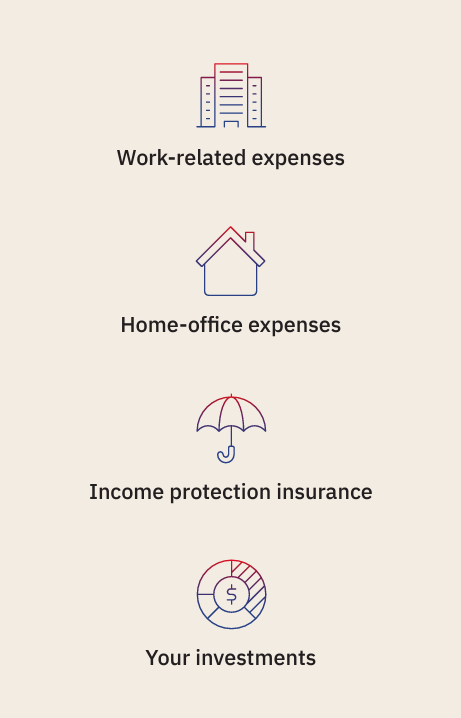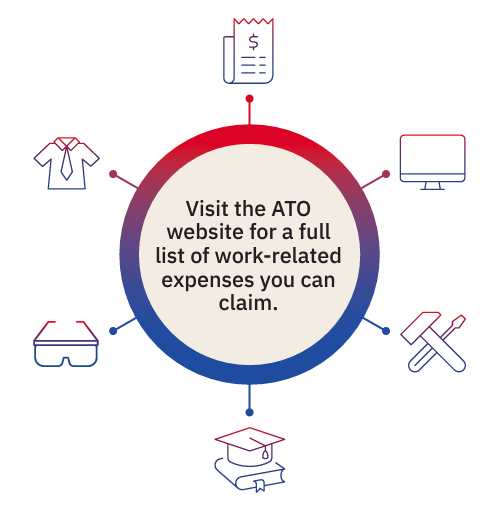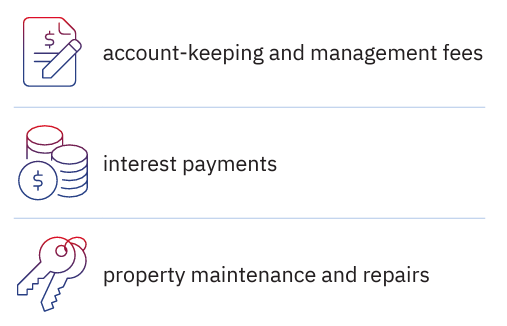The lead-up to June 30 is a great time to review your financial situation to make sure you take advantage of end of financial year strategies and concessions available to you. The following tax strategies could minimise your tax bill…
EOFY tax strategies |
Work-related expenses |
| Most people wait until it’s time to lodge their tax return before thinking about tax deductions they can claim. However, being prepared ahead of time could help you take advantage of additional strategies and further increase your tax savings.
Types of deductions include: |
To claim a deduction for a work-related expense, there are three conditions you need to meet:
Don’t forget to keep receipts for work-related expenses such as uniforms, safety equipment and education throughout the year, as these may be tax-deductible.
|
Home office expenses |
Your investments |
| If you work from home, you may be able to claim a deduction for work related expenses, such as:
The methods available to calculate working from home deductions are the ‘revised fixed rate’ and ‘actual cost’ methods. While the actual cost method remains unchanged, the revised fixed rate method has been updated, making it easier to calculate expenses and avoid time-consuming apportionment calculations. Visit the ATO website or talk to your tax agent to see which method is right for you.
Income Protection premiumsIf you have an income protection policy that isn’t part of your super fund, you may be able to claim the premiums as a tax deduction.
|
Investment expensesExpenses incurred while earning investment income may be tax-deductible. These include:
Talk to your tax agent about which expenses are immediately deductible and which can be claimed over future financial years.
Prepay investment loan interestIf you have an investment loan, you can prepay up to 12-months’ interest in advance. You may be able to claim a tax deduction for the prepayment in this financial year (subject to the relevant prepayment rules), which may work well if your total taxable income is going to be lower in the next financial year.
Review investment ownershipIf you have investments in your personal name, transferring ownership to your spouse (if they are on a lower marginal tax rate) or self-managed super fund (conditions apply), may reduce your tax bill on future investment income and capital gains. However, these transfers may have capital gains tax (CGT) implications so it’s important to seek tax and legal advice before proceeding.
Managing capital gainsIt’s important to assess if you have made any capital gains or losses from your investments. The most common way you realise a capital gain (or capital loss) is by selling assets such as property, shares or managed fund investments. Managed funds also distribute capital gains which you must report in your tax return. The Australian CGT system is quite complex so it’s important to consult your tax agent.
|
Seek Advice: You should seek independent, professional tax advice before making any decision based on this information.
Tax considerations are general and based on present tax laws and may be subject to change.
Source: Colonial First State




